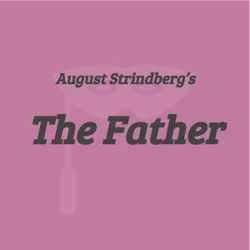
Explore this Show
Overview
Synopsis
Strindberg’s The Father shocked western audiences when it was first produced at the end of the nineteenth century due to its naturalistic depiction of women’s rights and the psychological breakdown of marital relations. When the Captain and his wife, Laura, have a disagreement about the future education of their daughter, Bertha, the couple grow further apart. The Captain wants Bertha to study to become a teacher, while Laura wants their daughter to stay at home and become an artist. The Captain rails against the female forces within his life, telling Laura that she gave up her rights when she married and became financially dependent upon her husband.
However, Laura plants the suspicion in her husband’s mind that Bertha is not his daughter after all and sets out to convince the new physician in town that the Captain is going mad. When her husband learns of her plan, he loses his temper and reacts by throwing a lamp at her. This violent action prompts the Captain to realise that he has lost control (thanks to his wife) and he rapidly descends into mental decline. Meanwhile Laura’s brother, the Pastor, recognizes and half admires the cunning game his sister has played to be rid of her domineering husband and regain her rights. Finally forced into a straitjacket, the Captain admits defeat to his wife’s dominance--”You could hypnotize me when I was wide awake, so that i neither saw nor heard, only obeyed”--and suffers a fatal stroke.
Show Information
Context
Plot
Characters
| Name | Part Size | Gender | Vocal Part |
|---|---|---|---|
|
Lead |
Male |
Spoken |
|
|
Lead |
Female |
Spoken |
|
|
Supporting |
Female |
Spoken |
|
|
Supporting |
Male |
Spoken |
|
|
Supporting |
Male |
Spoken |
|
|
Supporting |
Female |
Spoken |
|
|
Supporting |
Male |
Spoken |
Songs
A song with an asterisk (*) before the title indicates a dance number; a character listed in a song with an asterisk (*) by the character's name indicates that the character exclusively serves as a dancer in this song, which is sung by other characters.
Monologues
Scenes
Key Terms
Sorry! We do not currently have terms for this guide.
Videos
Quizzes
Themes, Symbols & Motifs
Sorry! We do not currently have learning modules for this guide.
Quote Analysis
Sorry! We do not currently have learning modules for this guide.
